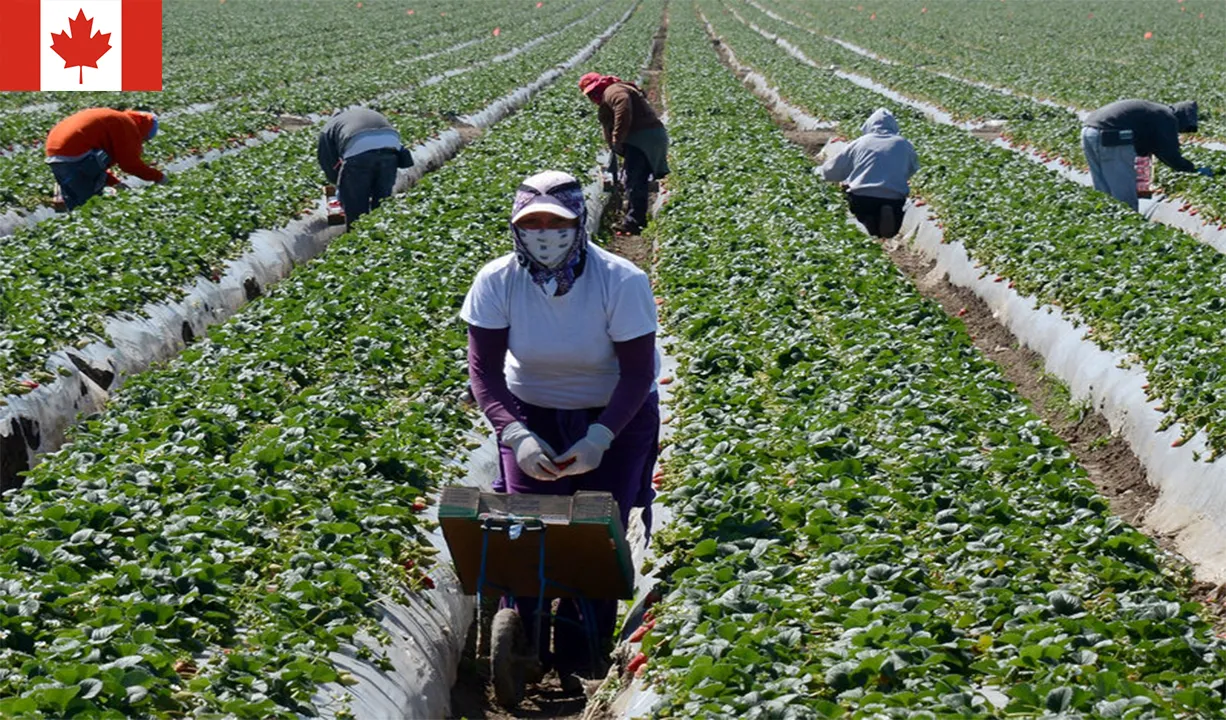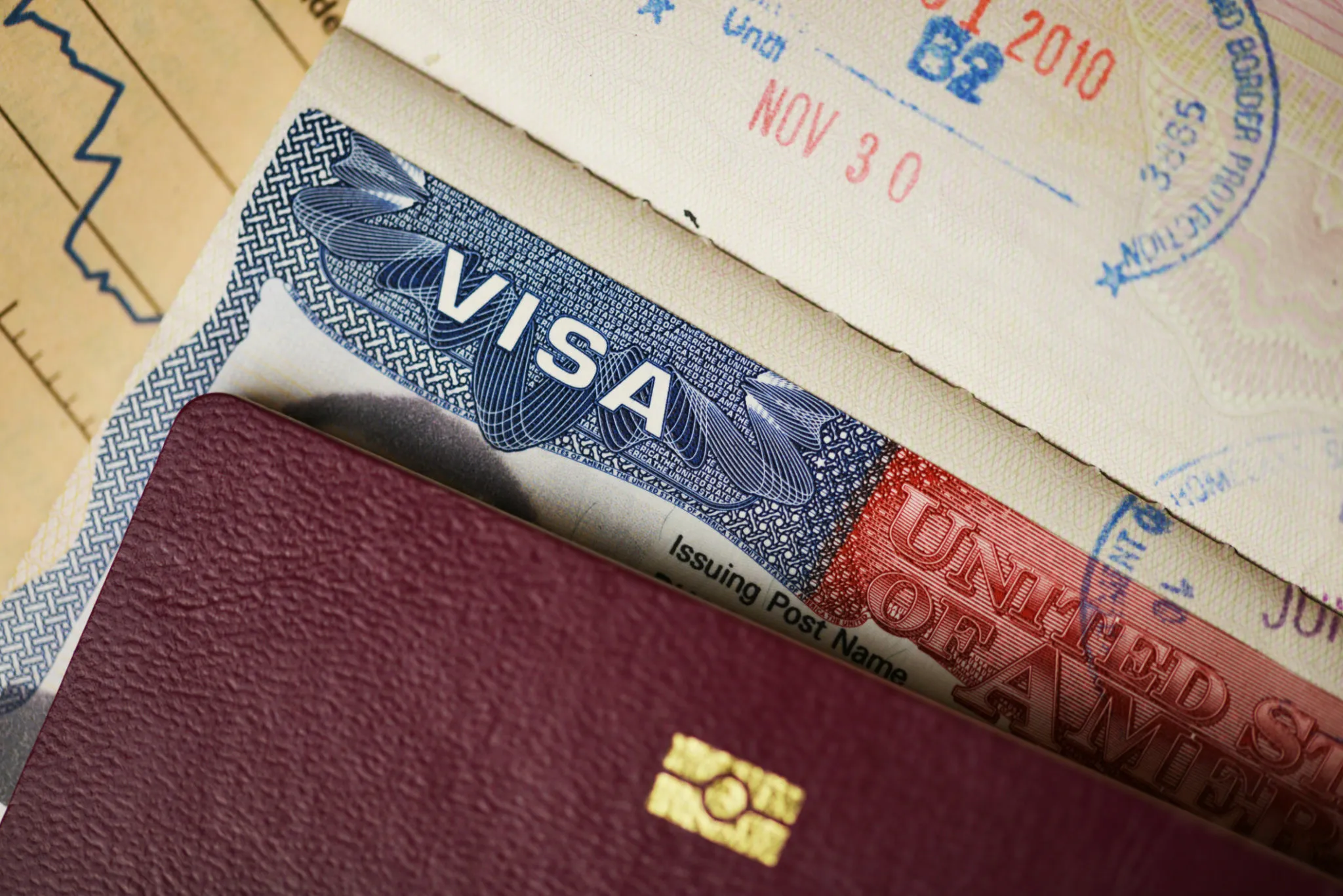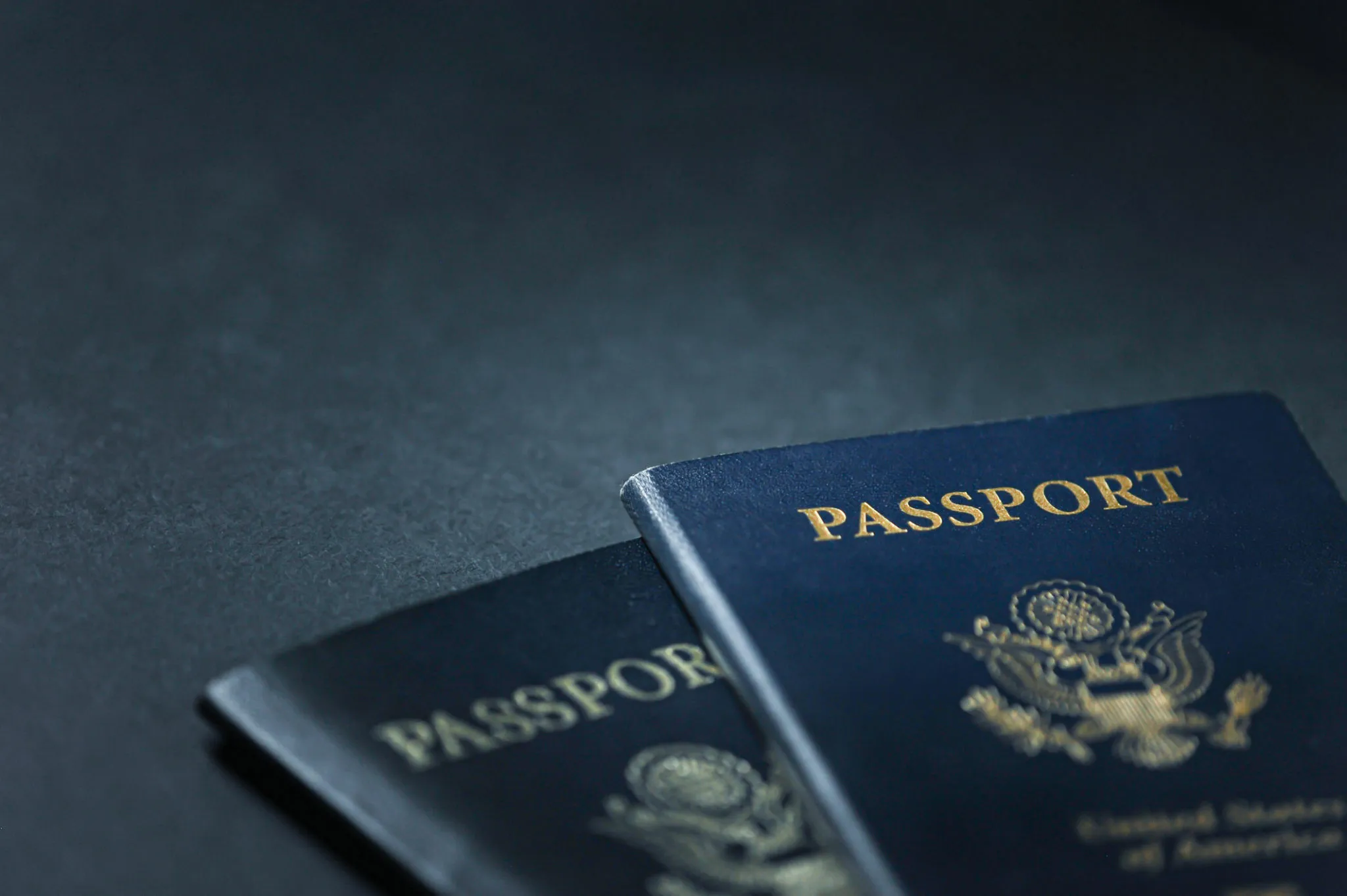Visa Guide
What Are The Requirements For A Visitor’s Visa To Canada?
Planning a trip to Canada? Understand the requirements for a visitor’s visa. From finances to health and ties to home country, this post covers it all.
Planning a trip to Canada? Before you start packing your bags and searching for the best maple syrup, it’s important to understand the requirements for a visitor’s visa. Whether you’re visiting for leisure, business, or to reconnect with friends and family, this article will guide you through the necessary steps to ensure a smooth and successful visa application process. From proof of financial support to providing a valid passport and travel itinerary, we’ve got you covered with all the essential information you need to know. So, sit back, grab a cup of Tim Hortons coffee, and let’s take a friendly stroll through the requirements for a visitor’s visa to Canada.
Eligibility
To be eligible for a visitor’s visa to Canada, you need to meet certain requirements. These requirements ensure that you are suitable for entry into the country as a temporary visitor. Here are the key eligibility criteria:
Purpose of visit
First and foremost, you must clearly state the purpose of your visit to Canada. Whether it is for tourism, visiting friends or family, attending a conference or business meeting, or any other valid reason, you need to clearly communicate the purpose of your trip.
Sufficient finances
You need to demonstrate that you have sufficient funds to cover your expenses during your stay in Canada. This includes expenses for accommodation, transportation, meals, and any other costs associated with your visit. Providing proof of your financial capability gives the immigration authorities confidence that you will not become a burden on the Canadian government or its residents.
Evidence of ties to home country
It is important to establish that you have strong ties to your home country and that you will return after your visit to Canada. This can be shown through various documents such as property ownership, employment letters, bank statements, or other relevant evidence that demonstrates your ties to your home country. By providing this evidence, you assure the authorities that you have no intention of overstaying your visa or seeking employment in Canada.
Good health
To enter Canada, you need to be in good health and free from any medical conditions that could pose a risk to public health or safety. In some cases, you may be required to undergo a medical examination to ensure that you do not have any contagious diseases or health conditions that could become a burden on the Canadian healthcare system.
No criminal history
Having a criminal record can significantly impact your chances of obtaining a visitor’s visa to Canada. You will be required to declare any criminal history and provide relevant documentation, such as police clearance certificates. The immigration authorities will assess your criminal record and determine if you pose a security risk or if your criminal history may prevent you from entering Canada.
Application Process
Now that you understand the eligibility criteria for a visitor’s visa to Canada, let’s delve into the application process. This process involves several steps, each of which is crucial to ensure a successful application.
Choose the right type of visa
Canada offers different types of visitor visas, including single-entry, multiple-entry, and transit visas. It is important to choose the visa type that suits your travel needs. If you plan to visit Canada multiple times within a specific period, a multiple-entry visa would be more suitable. If you are simply transiting through Canada on your way to another destination, a transit visa will be required.
Gather required documents
Collecting all the necessary documents is a vital part of the application process. The specific documents you need will depend on your individual circumstances, but common requirements include a valid passport, proof of financial support, a letter of invitation (if applicable), a travel itinerary, and proof of ties to your home country. It is important to carefully review the checklist provided by the Canadian immigration authorities to ensure you have all the required documents.
Complete the application form
The next step is to complete the application form. The application form requires you to provide personal information, such as your name, date of birth, and contact details. You will also need to provide information about the purpose of your visit, your travel history, your family information, and your background. It is essential to accurately and honestly complete the form, as any discrepancies or false information could lead to your application being rejected.
Pay the application fee
Upon completing the application form, you will be required to pay the application fee. The fee varies depending on the type of visa you are applying for, so it is important to check the current fee schedule. Payment can usually be made online using a credit or debit card. Once the payment is processed, you will receive a receipt that should be retained as proof of payment.
Submit the application
After completing the application form and paying the fee, the final step is to submit your application. You can submit your application online or by mail, depending on the requirements of your specific country. It is crucial to carefully follow the instructions provided by the Canadian immigration authorities to ensure that your application is received and processed correctly.
Documents Required
When applying for a visitor’s visa to Canada, certain documents are necessary to support your application and provide evidence of your eligibility. Here are some of the key documents you may be required to submit:
Valid passport
A valid passport is essential for international travel, including entry into Canada. Your passport should have a validity of at least six months beyond your intended departure date from Canada. It is important to ensure that your passport is not damaged, and that it contains blank visa pages for the issuance of the Canadian visa.
Proof of financial support
As mentioned earlier, you need to demonstrate that you have sufficient funds to cover your expenses during your stay in Canada. This can be done by providing bank statements, employment letters, or any other relevant financial documents that show your financial capability.
Letter of invitation
If you are visiting Canada at the invitation of a Canadian resident or organization, a letter of invitation is often required. The letter should include information about the inviter, the purpose and duration of the visit, and details about accommodation and financial support during the visit. The inviter may also need to provide proof of their status in Canada.
Travel itinerary
A detailed travel itinerary, including your planned dates of travel, destinations, accommodation arrangements, and any pre-booked activities or tours, can serve as supporting documentation for your visa application.
Proof of ties to home country
To establish your ties to your home country, you may need to provide documents such as property ownership, employment letters, proof of enrollment in educational institutions, or family ties. These documents help demonstrate that you have strong reasons to return to your home country after your visit to Canada.
Application Form
Completing the application form is a crucial step in the visa application process. The application form gathers important information about you and your travel plans. Here are the main sections of the application form:
Personal information
In this section, you will be asked to provide your personal details, including your name, date of birth, gender, nationality, and contact information. It is important to double-check the accuracy of this information, as any mistakes can lead to delays or complications with your application.
Purpose of visit
This section requires you to state the purpose of your visit to Canada. You should provide a clear and detailed explanation of the activities you intend to undertake during your stay, such as tourism, visiting family or friends, attending a conference or business meeting, or any other valid reason.
Travel history
You will need to provide information about your past international travel, including details of any previous visits to Canada or other countries. This helps immigration authorities assess your travel history and determine your compliance with immigration rules in the past.
Family information
In this section, you will be asked to provide information about your immediate family members, including their names, dates of birth, and relationship to you. It is important to provide accurate information about your family members, as this can help establish your ties to your home country.
Background information
This section requires you to answer questions about your background, such as your education, employment history, and any previous immigration status in Canada or other countries. It is important to answer these questions truthfully, as false information can have serious consequences on your visa application.
Processing Time
Once you have submitted your application, you may be curious about how long it will take for a decision to be made. The processing time for a visitor’s visa to Canada can vary depending on various factors. Let’s take a look at the different processing times:
Standard processing
The standard processing time for a visitor’s visa application is typically around several weeks. However, this can vary depending on the volume of applications received by the Canadian immigration authorities and the complexity of each individual case. It is advisable to submit your application well in advance of your planned travel date to allow for sufficient processing time.
Express Entry processing
If you qualify for the Express Entry program, which is designed for skilled workers and professionals, the processing time for a visitor’s visa may be faster. The Express Entry system aims to expedite the entry of skilled individuals into Canada by streamlining the application process. If you fall under this category, your application may be processed more quickly.
Visitor Record extension processing
If you are already in Canada as a visitor and need to extend your stay, you will need to apply for a Visitor Record extension. The processing time for a Visitor Record extension can vary depending on the specific circumstances of your case. It is advisable to submit your application for an extension well in advance of the expiration date of your current visa to avoid any legal status issues.
Application Fee
In addition to gathering the required documents and completing the application form, you will need to pay several fees as part of the visa application process. These fees contribute to the cost of processing your application and providing consular services. Here are the main fees associated with a visitor’s visa to Canada:
Visa fee
The visa fee is the main fee associated with the application process. The amount varies depending on the type of visa you are applying for, ranging from single-entry visas to multiple-entry visas. It is important to check the current fee schedule to determine the exact amount you need to pay.
Biometrics fee
In certain cases, you may be required to provide biometric information, which includes fingerprints and a photograph. A separate fee is charged for biometrics collection, and it must be paid in addition to the visa fee. The biometrics fee is uniform for all applicants aged 14 and above.
VAC service fee
If you choose to submit your application at a Visa Application Center (VAC), you will be required to pay a service fee. The VAC service fee covers the cost of administrative services provided by the center, such as document collection, application form review, and biometrics collection (if applicable). The amount of the VAC service fee may vary depending on the location and services provided.
Interview
While not all visa applicants are required to attend an interview, some individuals may be selected for an interview as part of the application process. Here’s what you need to know about the interview process:
Selection for an interview
The decision to request an interview is made by the Canadian immigration authorities based on various factors, such as the complexity of the application, the applicant’s personal circumstances, and the need for additional information. If you are selected for an interview, you will receive a notification stating the date, time, and location of the interview.
Preparing for the interview
If you are required to attend an interview, it is important to prepare thoroughly. Familiarize yourself with the details provided in your application, gather supporting documents, and be ready to answer questions about the purpose of your visit, your ties to your home country, and your ability to support yourself financially during your stay in Canada. Practicing potential interview questions can help you feel more confident and prepared.
During the interview
During the interview, you will be asked questions by an immigration officer. It is important to answer the questions truthfully and concisely. Maintain a calm and professional demeanor throughout the interview to leave a positive impression. If you are unsure about any question, don’t be afraid to ask for clarification. Remember, the purpose of the interview is for the immigration officer to assess your eligibility and gather any additional information they may need to make a decision on your application.
Possible outcomes
After the interview, the immigration officer will assess your application and make a decision based on the information provided. The possible outcomes include approval, refusal, or a request for additional documents or information. If your application is approved, you will receive your visitor’s visa. If your application is refused, you will be provided with details on the reasons for the refusal and any potential appeal options.
Medical Examination
In some cases, individuals applying for a visitor’s visa to Canada may be required to undergo a medical examination. This is to ensure that you are in good health and do not pose a risk to public health or safety. Here are some key points about the medical examination:
When is a medical examination required?
A medical examination is typically required if you plan to visit Canada for more than six months, if you plan to work in certain occupations, or if you have resided in or traveled through certain countries with a high incidence of tuberculosis or other communicable diseases. The specific requirements for a medical examination will be outlined by the Canadian immigration authorities.
Designated medical practitioners
The medical examination must be conducted by a designated medical practitioner approved by the Canadian immigration authorities. These practitioners are authorized to perform the required medical tests and provide the necessary medical documentation for your visa application. It is important to consult the Canadian immigration website to find a designated medical practitioner in your area.
Cost of the medical examination
The cost of the medical examination is not covered by the visa application fee. You will be responsible for paying the medical examination fee directly to the designated medical practitioner. The fee may vary depending on the location and the specific medical tests required.
Validity of the medical results
The medical examination results are typically valid for one year from the date of issuance. This means that if your visa application is not processed within one year of your medical examination, you may need to undergo a new medical examination. It is important to factor in the timing of your medical examination to ensure that it aligns with the processing timeframe of your application.
Biometrics
Biometrics refers to the collection of unique personal data such as fingerprints and photographs. Biometric information is used to establish and confirm your identity and is required for certain types of visa applications. Here’s what you need to know about biometrics for a visitor’s visa to Canada:
What are biometrics?
Biometrics are used as an additional layer of security to verify the identity of visa applicants. This includes the collection of fingerprints and a digital photograph. Biometric information is stored securely and is used for identity verification when traveling to Canada.
Who needs to provide biometrics?
Applicants aged 14 and above may be required to provide biometrics as part of the visa application process. Exceptions may apply to certain individuals, such as Canadian passport holders, U.S. visa holders, or individuals applying for a transit visa or an eTA (Electronic Travel Authorization). It is important to check the requirements specific to your situation to determine if biometrics are necessary.
How to give biometrics?
Biometrics can be given at a Visa Application Center (VAC) or at a designated location. Depending on the country, applicants may need to schedule an appointment in advance or walk in during designated hours. During the biometrics appointment, your fingerprints will be taken electronically, and a digital photograph will be captured.
Biometrics collection sites
Canada has established biometrics collection sites in various countries. These sites are typically located at Visa Application Centers (VACs) or other designated locations. It is important to check the Canadian immigration website to find the location nearest to you and to determine the specific requirements and processes for biometrics collection.
Visa Validity and Extension
Once you have obtained a visitor’s visa to Canada, it is important to be aware of the visa’s validity and the options for extending your stay if needed. Here’s what you need to know:
Duration of stay
The duration of your stay in Canada will depend on the type of visa you have been granted. Single-entry visas typically allow for a stay of up to six months, while multiple-entry visas may allow for stays of up to ten years. It is important to adhere to the specified duration of stay as indicated on your visa.
Extending your stay
If you wish to extend your stay in Canada beyond the expiration date of your current visa, you will need to apply for a Visitor Record. A Visitor Record grants temporary resident status in Canada and allows you to legally extend your stay. It is important to apply for a Visitor Record before your current visa expires to ensure continuous legal status in Canada.
Fees for extending visitor visa
There are fees associated with extending your visitor visa in Canada. The fees vary depending on the type of extension requested and the current fee schedule. It is important to check the Canadian immigration website for the most up-to-date information on fees and procedures for extending your stay.
Visitor Record
A Visitor Record is an official document issued by the Canadian immigration authorities that extends your stay in Canada. When applying for a Visitor Record, you will need to provide supporting documents and demonstrate that you continue to meet the eligibility criteria for a visitor’s visa. If your application is approved, you will be issued a new Visitor Record with an extended validity period.
In conclusion, obtaining a visitor’s visa to Canada requires careful preparation, submission of the necessary documents, and adherence to the application process. By meeting the eligibility criteria, providing the required documents, and following the procedures outlined by the Canadian immigration authorities, you can enhance your chances of a successful visa application. Remember to start the process well in advance, as processing times can vary, and allow yourself sufficient time to gather the necessary documentation. With proper planning and preparation, you can look forward to an enjoyable and hassle-free visit to Canada.
Didn't find what you were looking for? Search here















